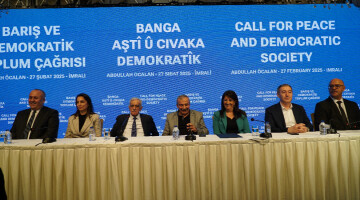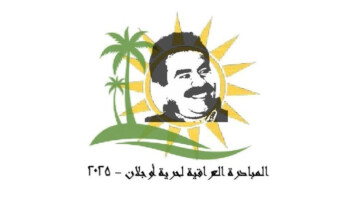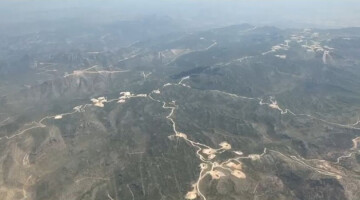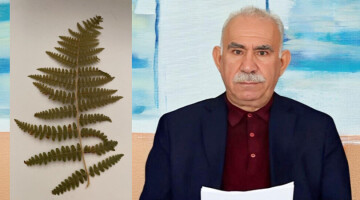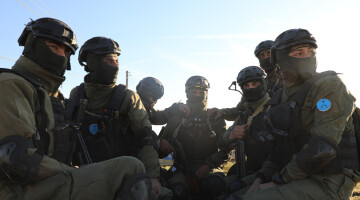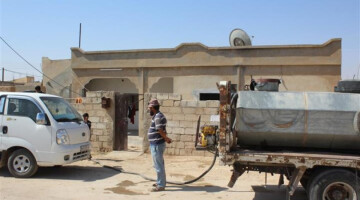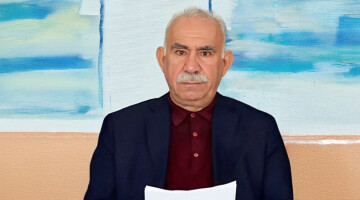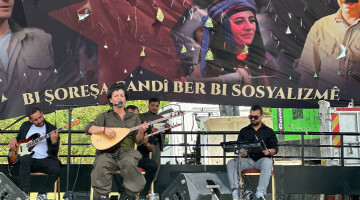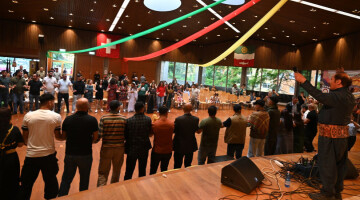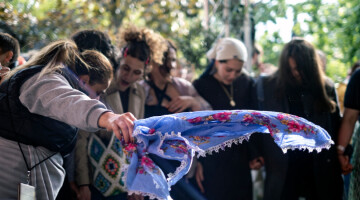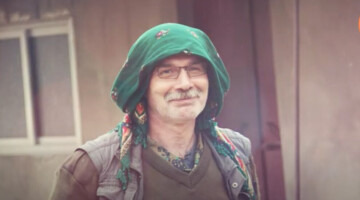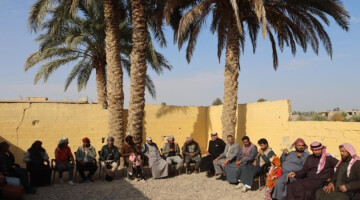Ghobadi’s new film ‘Life on the Border,’ depicting the stories of 8 children from Kobanê and Shengal who escaped ISIS brutality and ended up in refugee camps, was shown in Berlinale. Produced by Bahman Ghobadi, ‘Life on the Border’ was shown in Berlin Film Festival and highlights the tragedy of Kurdish children. The film was shot by children, and focuses on the lives of children who escaped ISIS attacks in Rojava, Syria and South Kurdistan.
The effects of the massacre ISIS carried out in Shengal, the land of Êzîdî Kurds, in 2014 are felt even today. Thousands of Êzîdî women are still captives of ISIS gangs, and tens of thousands of Kurdish Êzîdîs life in refugee camps across Northern, Western and Southern Kurdistan.
The world has witnessed the biggest tragedy of our times two years ago in Shengal, but the voice of Êzîdîs were not heard. Bahman Ghobadi carried the voice of children from Shengal and Kobanê to the cinema screen.
SHOT IN REFUGEE CAMPS
The film depicting the stories of 8 children is half fiction and half documentary. Children named Hazem Khodeideh, Basmeh Soleiman, Sami Hossein, Ronahi Ezaddin, Diar Omar, Delovan Kekha, Mahmod Ahmad and Zohour Saeid, who escaped from ISIS brutality in Kobanê and Shengal, document their stories. The film was shot in Kobanê and refugee camps in South and North Kurdistan and was produced by Ghobadi and directed by Shaho Nemat.
CHILDREN SHOOT THEIR OWN FILM
Traces of movies such as ‘Turtles Can Fly,’ ‘A Time For Drunken Horses’ and ‘Songs From My Mother’s Country’ can be seen in Ghobadi’s new film.
The film carries the voice of Êzîdî children and overwhelms the audience! Ghobadi simultaneously draws attention to the massacres and criticizes the world’s silence on this issue.
The film creates an emotional environment around Kurdish children, but does not seem to be very successful in terms of cinematography. The film is not as impressive as other Ghobadi movies such as ‘Turtles Can Fly’ and ‘A Time For Drunken Horses.’ The half fictive and half documentary qualities of the film create a disruption, and the amateur actors’ performances are questionable. However, the film succeeds in giving the message it has, and the performance of Zohour Saeid at the end is particularly impressive…
‘THERE ARE THOUSANDS OF SAD STORIES’
Shaho Nemat answered the questions of the audience at the screening in Berlin, and said that they shot the film in 4-5 camps throughout 8 months. Nemat said that they worked 8 hours a day and worked together with 30 children in order to teach them different aspects of filmmaking, particularly screenwriting and recording. Nemat said that there were thousands of children with painful stories in the camps, and the film crew’s aim was to allow children to tell their own stories.
CHILDREN’S LETTER TO MERKEL
Hazem Khodeideh, Basmeh Soleiman, Sami Hossein, Ronahi Ezaddin, Diar Omar, Delovan Kekha, Mahmod Ahmad and Zohour Saeid could not go to Berlin due to passport and visa problems, and the letter they wrote to German Chancellor Angela Merkel was read out to the audience by Shaho Nemat.


